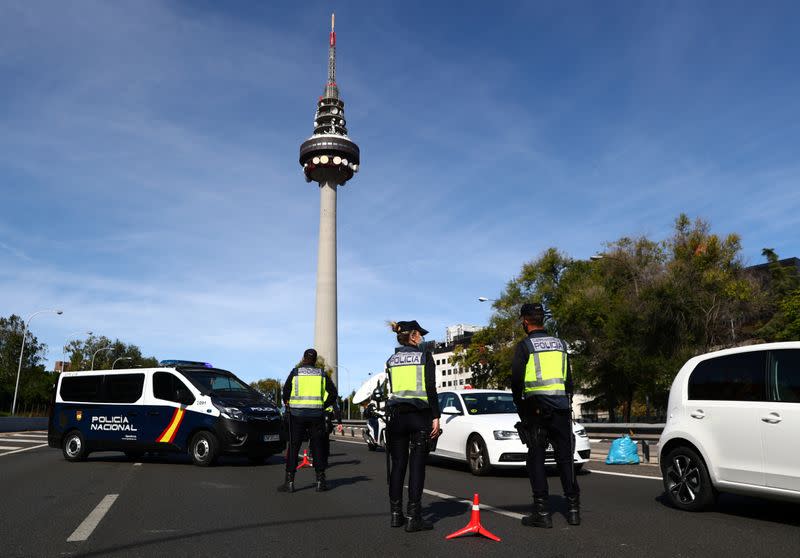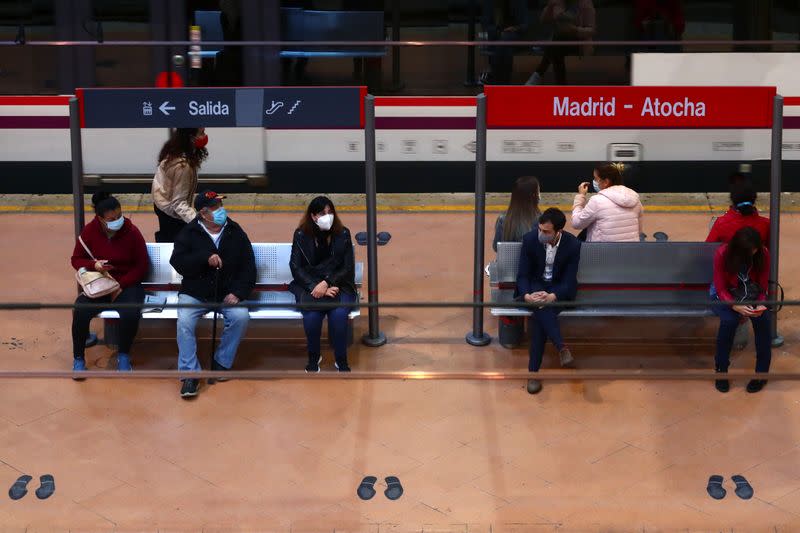Business as usual? Scant enforcement of Madrid's new lockdown
By Silvio Castellanos and Michael Gore
MADRID (Reuters) - Madrid residents were largely coming and going as normal on Monday despite a prohibition on non-essential travel in the first European capital to return to a coronavirus lockdown due to resurgent infections, which rose above 800,000 nationally.
Police said 300 officers were manning 60 checkpoints, but commuters poured into the Spanish capital as usual and few said they had noticed extra controls.
With 850 COVID-19 infections per 100,000 people, the Madrid area has Europe's highest rate, so 4.8 million people in the city and nine satellite towns came under new restrictions from Friday night.
"I haven't seen any police controls. I don't quite understand this situation that they have created," said nutrition student Cristina Canete.
Worried about further economic damage, the conservative-led regional authority only reluctantly agreed to the new measures ordered by the socialist-led national government, and launched a legal challenge. But the high court rejected an initial appeal on Monday.
RESTAURANT CANCELLATIONS
Another student, Ines Torres, said she had seen little evidence of checkpoints around the Moncloa neighbourhood, which is home to Madrid's biggest university and one of the main intercity bus terminals.
"I live here and I haven't noticed any change. Nothing."
But Madrid's bar and restaurant owners were feeling the pinch after some 75,000 reservations were cancelled over the weekend, leading to 8 million euros ($9.4 million) in losses, according to a business association.
Under the new rules, residents can only cross city boundaries for work, school, health or shopping. Bars and restaurants must close at 11 p.m. instead of 1 a.m., while gatherings of more than six people remain banned.
The government has warned of fines for transgressors and some "Madrilenos" cancelled weekend leisure or family plans.
With contagion rates rising too in several other regions, authorities were imposing the same restrictions there, including in parts of the northern Castile Leon region.
The national health ministry recorded 23,480 new infections over the weekend, pushing the overall tally up to 813,412 and making Spain the first Western European nation to surpass 800,000 cases.
The death toll rose to 32,225 from 32,086 on Friday.
($1 = 0.8506 euros)
(Reporting by Silvio Castellanos, Michael Gore and Emma Pinedo; Writing by Nathan Allen; Editing by Inti Landauro, Andrew Cawthorne and Mark Heinrich)



